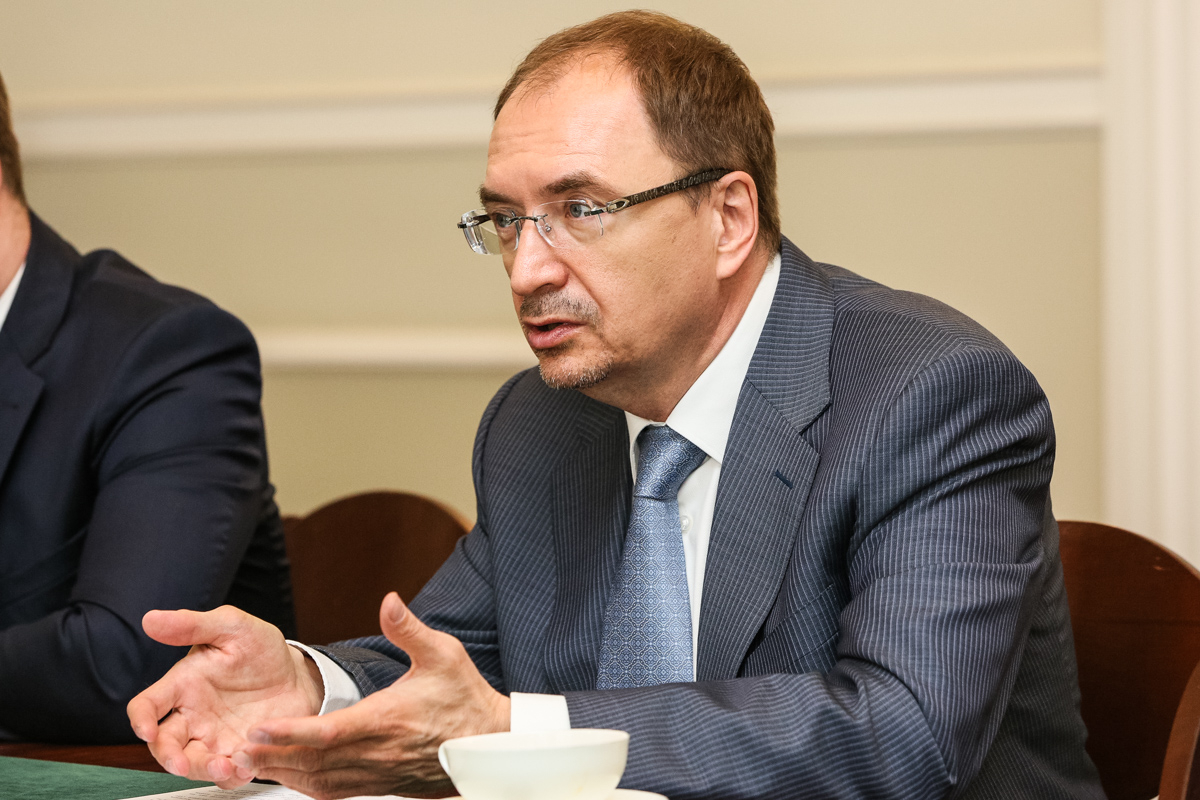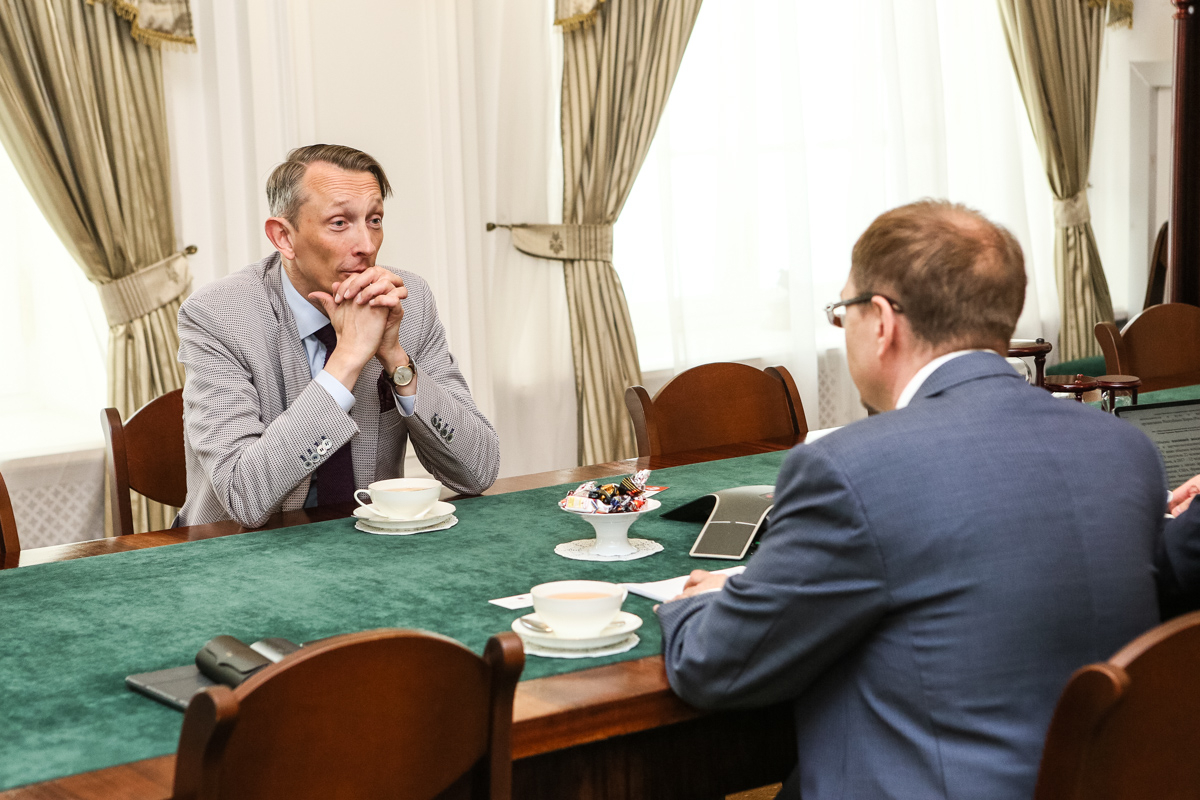Consul General of Estonia visits St Petersburg University
Consul General of Estonia in St Petersburg Carl Eric Laantee Reintamm met with administrative staff, teachers and students of St Petersburg University.
During the meeting, the Rector of the University Nikolay Kropachev told the diplomat about the existing possibilities for expanding the Estonian component in the educational programmes of the University. ‘If you want Estonia to be included into other educational programmes apart from the language and culture ones, we are open for suggestions concerning integrating the Estonian component into the University educational process,’ Nikolay Kropachev said. In this regard he gave an example of the master’s programme ‘Culture and Art of Hungary’ which had been created with the keen involvement of the ambassador of Hungary in Russia.
The University suggested that Mr Carl Eric Laantee Reintamm should be the head of the council of the academic programme ‘Estonian’ or offer candidates for the post. That would help to work out the content of the programme and graduation project topics. It would also enable participation in State Assessment Boards and have an effect on the quality of the training of students. Additionally, the idea of collaboration with the International Students Club of the University was introduced.
In recent years, St Petersburg University and Estonian universities and scientific centres have published 47 co-authored articles.
The Consul General confessed that he was surprised to find out about the format of collaboration between the University and its foreign partners. He pointed out that he would definitely report about the proposal of the University to his executive staff and the people who could be potentially interested in collaboration. Carl Eric Laantee Reintamm underlined that he was aware of the highest level of expertise of the students of the Ugric studies.
Also, during the visit the honoured guest met with students and teachers.
‘In Russia there are only three universities that teach the Estonian language. And it is only in St Petersburg University that it is taught as a major subject,’ said Natalia Kolpakova, Associate Professor at the University (Department of Finno-Ugric Philology), at the meeting of the Consul of Estonia with the students. ‘The University has formed academic traditions of teaching the Estonian language, which are based on the immense experience of working with other Finno-Ugric languages.’
The history of teaching and learning the Finno-Ugric languages at the University dates back more than a century. The decision to establish a department of the Finno-Ugric languages was made in December 1917. The Finnish language started to be taught after World War Two, the Hungarian – in 1946. Estonian has been taught as a special course since 2001 and as a major discipline since 2007. In 2019, St Petersburg University started admission to the bachelor’s programme ‘Estonian’ as part of the ‘Linguistics’ programme.
Students and teachers of St Petersburg University do internship in Tallinn and Tartu. They take part in international student conferences, giving presentations on the issues of the Estonian language.
Our teaching methodology is unique on the global scale.
Larisa Mukovskaia, Assistant Professor at St Petersburg University
‘Students have 18 lessons a week of Estonian as a major language in their first year and 16 lessons a week in their second year of studies. No other university in the World provides so many lessons of Estonian, even the Estonian ones. Thanks to a close collaboration with the universities of Tallinn and Tartu, we have Estonian teachers working on a regular basis,’ said Larisa Mukovskaia, Assistant Professor at St Petersburg University.
The consul was surprised with the comprehensive approach to teaching languages. He spoke about his own experience of learning languages. Being born in South America, he knew Spanish, but everyone in his family spoke Estonian. By the time his family moved to Sweden, he had learned English, because he had attended the American nursery school in Uruguay. ‘In Stockholm I had finished a French-Swedish school and began studying at the evening language courses where I learned German and Russian. Also, at university I attended courses of the Latvian language,’ said the diplomat.
‘I have never experienced an approach to teaching languages as profound as the one you have at the University,’ he said to the students. ‘However, the World has changed. You are studying hard and you are curious about other cultures. So we have great expectations of you. Looking at you I do hope you will change the World for better.’



